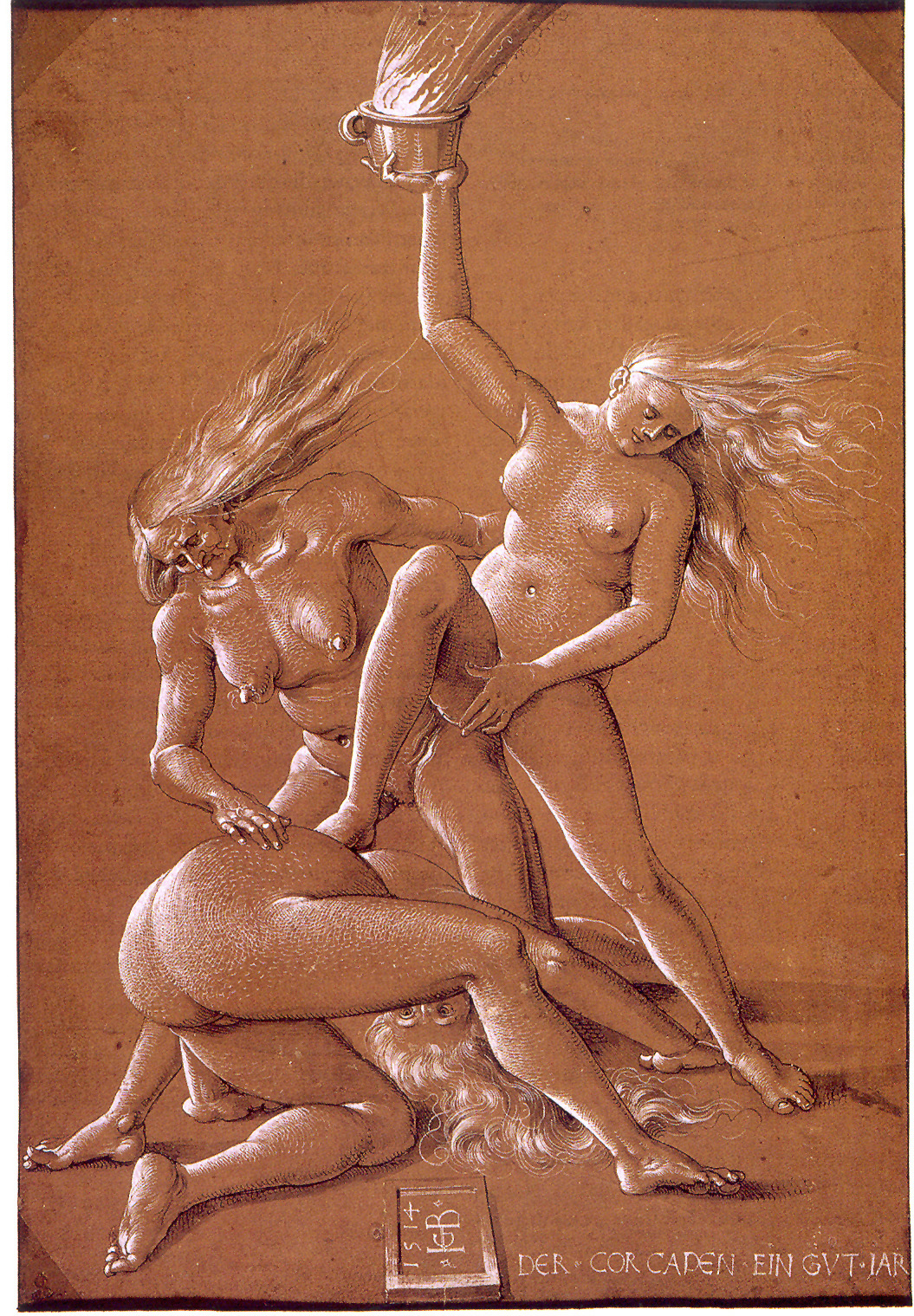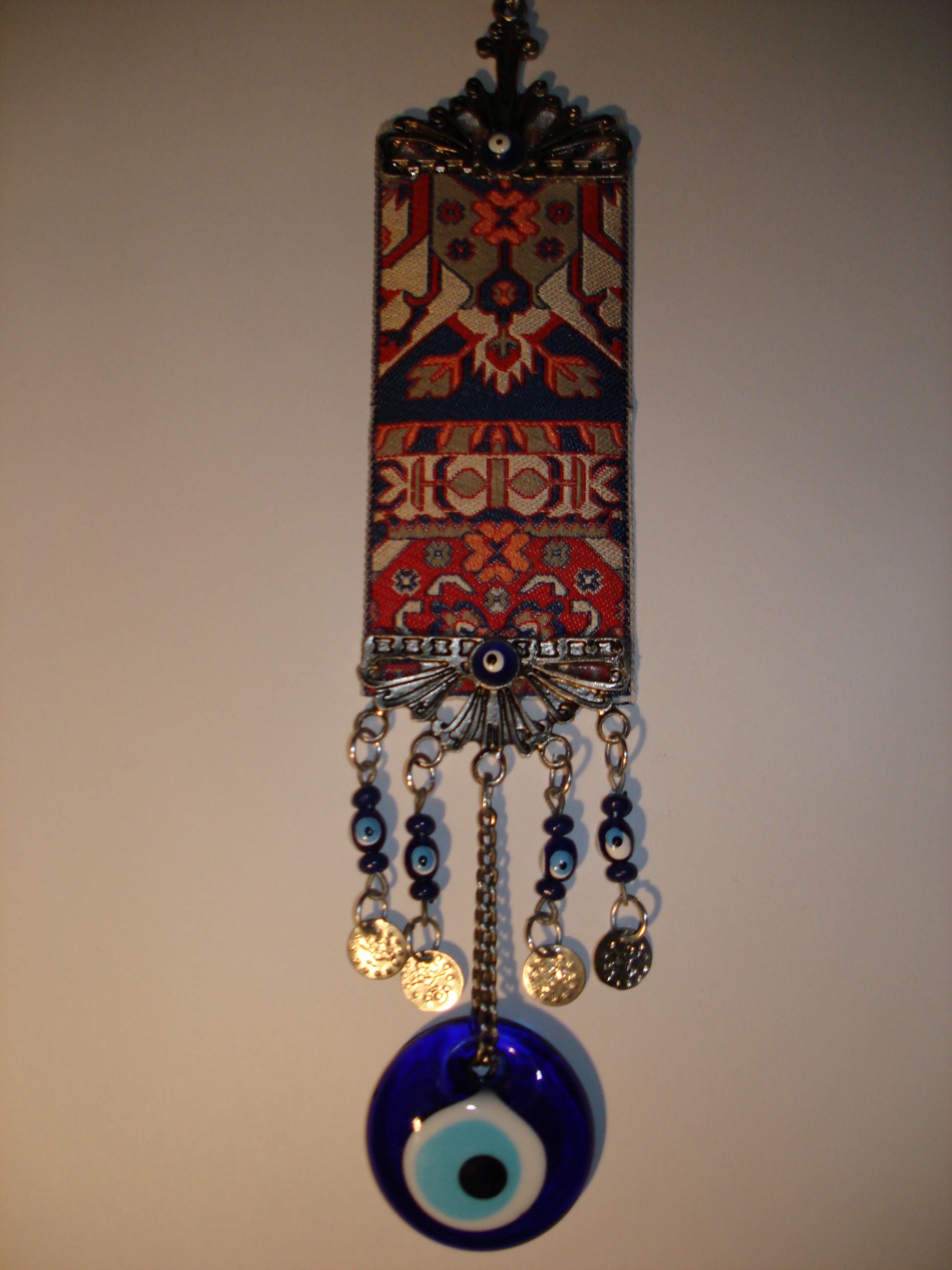|
Kitchen Witch
A kitchen witch, sometimes called a cottage witch is a homemade poppet or doll resembling a stereotypical witch or crone displayed in residential kitchens as a good luck charm and to ward off bad spirits. History There is some debate over where the kitchen witch originated, some claiming Scandinavia and others Germany, but consensus points to older Northern European customs, as it seems to have been more widespread earlier. The poppet is supposed to depict a "good" witch who inspires productivity and safety in a kitchen, but also counteracts any ill-will directed to the home. It is considered good luck to give a kitchen witch to a friend or family member. So that those unfamiliar with the kitchen witch can understand its meaning, sometimes a note will be hung around the witch's neck stating something similar to: The Legendary Secret of Goof-Proof Cooking: The Famous Kitchen Witch For centuries, Norwegians have hung this good witch in their kitchen. They believe she has the powe ... [...More Info...] [...Related Items...] OR: [Wikipedia] [Google] [Baidu] |
Apotropaic Magic
Apotropaic magic (from Greek "to ward off") or protective magic is a type of magic intended to turn away harm or evil influences, as in deflecting misfortune or averting the evil eye. Apotropaic observances may also be practiced out of superstition or out of tradition, as in good luck charms (perhaps some token on a charm bracelet), amulets, or gestures such as crossed fingers or knocking on wood. Many different objects and charms were used for protection throughout history. Symbols and objects Ancient Egyptian Apotropaic magical rituals were practiced throughout the ancient Near East and ancient Egypt. Fearsome deities were invoked via ritual in order to protect individuals by warding away evil spirits. In ancient Egypt, these household rituals (performed in the home, not in state-run temples) were embodied by the deity who personified magic itself, Heka. The two gods most frequently invoked in these rituals were the hippopotamus-formed fertility goddess, Taweret, and the ... [...More Info...] [...Related Items...] OR: [Wikipedia] [Google] [Baidu] |
Norwegian Folklore
Nordic folklore is the folklore of Denmark, Norway, Sweden, Iceland and the Faroe Islands. It has common roots with, and has been mutually influenced by, folklore in England, Germany, the Low Countries, the Baltic countries, Finland and Sapmi. Folklore is a concept encompassing expressive traditions of a particular culture or group. The peoples of Scandinavia are heterogenous, as are the oral genres and material culture that has been common in their lands. However, there are some commonalities across Scandinavian folkloric traditions, among them a common ground in elements from Norse mythology as well as Christian conceptions of the world. Among the many tales common in Scandinavian oral traditions, some have become known beyond Scandinavian borders – examples include The Three Billy Goats Gruff and The Giant Who Had No Heart in His Body. Beings A large number of different mythological creatures from Scandinavian folklore have become well known in other parts of the world, ma ... [...More Info...] [...Related Items...] OR: [Wikipedia] [Google] [Baidu] |
European Witchcraft
Belief in witchcraft in Europe can be traced to classical antiquity and has continuous history during the Middle Ages, culminating in the Early Modern witch trials and giving rise to the fairy tale and popular culture "witch" stock character of modern times, as well as to the concept of the "modern witch" in Wicca and related movements of contemporary witchcraft. In medieval and early modern Europe, accused witches were usually women who were believed to have used magic to cause harm and misfortune to members of their own community. Witchcraft was seen as immoral and often thought to involve communion with evil beings, such as a "Deal with the Devil". It was believed witchcraft could be thwarted by protective magic or counter-magic, which could be provided by the cunning folk. Suspected witches were also intimidated, banished, attacked or lynched. Often they would be formally prosecuted and punished if found guilty. European witch-hunts and witch trials in the early modern peri ... [...More Info...] [...Related Items...] OR: [Wikipedia] [Google] [Baidu] |
Superstitions Of Scandinavia
A superstition is any belief or practice considered by non-practitioners to be irrational or supernatural, attributed to fate or magic (supernatural), magic, perceived supernatural influence, or fear of that which is unknown. It is commonly applied to beliefs and practices surrounding luck, amulets, astrology, fortune telling, Spirit (animating force), spirits, and certain paranormal wikt:entity, entities, particularly the belief that future events can be foretold by specific (apparently) unrelated prior events. Also, the word ''superstition'' is often used to refer to a religion not practiced by the majority of a given society regardless of whether the prevailing religion contains alleged superstitions or to all religions by the antireligion, antireligious. Contemporary use Definitions of the term vary, but commonly describe superstitions as irrational beliefs at odds with scientific knowledge of the world. Stuart Vyse proposes that a superstition's "presumed mechanism of ac ... [...More Info...] [...Related Items...] OR: [Wikipedia] [Google] [Baidu] |
Magic (supernatural)
Magic, sometimes spelled magick, is an ancient praxis rooted in sacred rituals, spiritual divinations, and/or cultural lineage—with an intention to invoke, manipulate, or otherwise manifest supernatural forces, beings, or entities in the natural, incarnate world. It is a categorical yet often ambiguous term which has been used to refer to a wide variety of beliefs and practices, frequently considered separate from both religion and science. Although connotations have varied from positive to negative at times throughout history, magic continues to have an important religious and medicinal role in many cultures today. Within Western culture, magic has been linked to ideas of the Other, foreignness, and primitivism; indicating that it is "a powerful marker of cultural difference" and likewise, a non-modern phenomenon. During the late nineteenth and early twentieth century, Western intellectuals perceived the practice of magic to be a sign of a primitive mentality and also comm ... [...More Info...] [...Related Items...] OR: [Wikipedia] [Google] [Baidu] |
Luck
Luck is the phenomenon and belief that defines the experience of improbable events, especially improbably positive or negative ones. The naturalistic interpretation is that positive and negative events may happen at any time, both due to random and non-random natural and artificial processes, and that even improbable events can happen by random chance. In this view, the epithet "lucky" or "unlucky" is a descriptive label that refers to an event's positivity, negativity, or improbability. Supernatural interpretations of luck consider it to be an attribute of a person or object, or the result of a favorable or unfavorable view of a deity upon a person. These interpretations often ''prescribe'' how luckiness or unluckiness can be obtained, such as by carrying a lucky charm or offering sacrifices or prayers to a deity. Saying someone is "born lucky" may hold different meanings, depending on the interpretation: it could simply mean that they have been born into a good family or ... [...More Info...] [...Related Items...] OR: [Wikipedia] [Google] [Baidu] |
Hoko (doll)
Hoko may refer to: Places * Hoko, Kachin State, a village in Kachin State, Burma *Hōko Prefecture, administrative division of Taiwan under Japanese rule, corresponding to present-day Penghu County *Hōkō temple, name of several Japanese temples, see Hōkō-ji (other) *Hoko River, a river that flows in Clallam County, Washington People *Paul Hodkinson aka Hoko (born 14 September 1965), boxer Other uses * Hoko (dance), Easter Island dance similar to Maori haka * Hoko (doll), Japanese doll used as a talisman * Hōkō (mythology), dog-like tree spirit, equivalent to Chinese Penghou * Hoko yari, old Japanese spear * Hoko system, administrative system employed in Japanese-controlled Taiwan * ''Hoko'', an album by the late Zimbabwean musician Simon Chimbetu See also *Houko Kuwashima is a Japanese voice actress and singer.Doi, Hitoshi"Kuwashima Houko" ''Seiyuu Database''. 3 January 2011. Retrieved 9 January 2011. She is capable of playing a variety of roles, rangi ... [...More Info...] [...Related Items...] OR: [Wikipedia] [Google] [Baidu] |
Good Luck Charm
In most contexts, the concept of good denotes the conduct that should be preferred when posed with a choice between possible actions. Good is generally considered to be the opposite of evil and is of interest in the study of ethics, morality, philosophy, and religion. The specific meaning and etymology of the term and its associated translations among ancient and contemporary languages show substantial variation in its inflection and meaning, depending on circumstances of place and history, or of philosophical or religious context. History of Western ideas Every language has a word expressing ''good'' in the sense of "having the right or desirable quality" ( ἀρετή) and ''bad'' in the sense "undesirable". A sense of moral judgment and a distinction "right and wrong, good and bad" are cultural universals. Plato and Aristotle Although the history of the origin of the use of the concept and meaning of "good" are diverse, the notable discussions of Plato and Aristotle on ... [...More Info...] [...Related Items...] OR: [Wikipedia] [Google] [Baidu] |
Folk Religion
In religious studies and folkloristics, folk religion, popular religion, traditional religion or vernacular religion comprises various forms and expressions of religion that are distinct from the official doctrines and practices of organized religion. The precise definition of folk religion varies among scholars. Sometimes also termed popular belief, it consists of ethnic or regional religious customs under the umbrella of a religion, but outside official doctrine and practices. The term "folk religion" is generally held to encompass two related but separate subjects. The first is the religious dimension of folk culture, or the folk-cultural dimensions of religion. The second refers to the study of syncretisms between two cultures with different stages of formal expression, such as the melange of African folk beliefs and Roman Catholicism that led to the development of Vodun and Santería, and similar mixtures of formal religions with folk cultures. Chinese folk religion, f ... [...More Info...] [...Related Items...] OR: [Wikipedia] [Google] [Baidu] |
European Folklore
European folklore or Western folklore refers to the folklore of the Western world, especially when discussed comparatively. The history of Christendom during the Early Modern period has resulted in a number of traditions that are shared in many European ethnic and regional cultures. This concerns notably common traditions based on Christian mythology, i.e. certain commonalities in celebrating Christmas, such as the various Christmas gift-bringers, or customs associated with All Souls' Day. In addition, there are certain apotropaic gestures or practices found in large parts of the Western world, such as the knocking on wood or the fingers crossed gesture. History Many tropes of European folklore can be identified as stemming from the Proto-Indo-European peoples of the Neolithic and Bronze Age, although may originate from even earlier traditions. Examples of this include the ‘Chaoskampf’ myth-archetype as well as possibly the belief in knocking on wood for good luck. The cul ... [...More Info...] [...Related Items...] OR: [Wikipedia] [Google] [Baidu] |
Amulet
An amulet, also known as a good luck charm or phylactery, is an object believed to confer protection upon its possessor. The word "amulet" comes from the Latin word amuletum, which Pliny's ''Natural History'' describes as "an object that protects a person from trouble". Anything can function as an amulet; items commonly so used include statues, coins, drawings, plant parts, animal parts, and written words. Amulets which are said to derive their extraordinary properties and powers from magic or those which impart luck are typically part of folk religion or paganism, whereas amulets or sacred objects of formalised mainstream religion as in Christianity are believed to have no power of their own without faith in Jesus and being blessed by a clergyman, and they supposedly will also not provide any preternatural benefit to the bearer who does not have an appropriate disposition. Talisman and amulets have interchangeable meaning. Amulets refer to any object which has the power to av ... [...More Info...] [...Related Items...] OR: [Wikipedia] [Google] [Baidu] |









